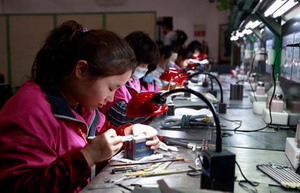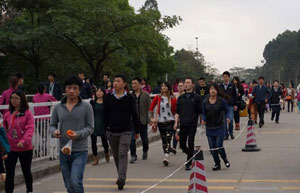

"When the older generation grew up, the Chinese economy was not good, and many families were on the poverty line," Liu says. "So they went out to make a living for themselves and also for their families. They had to work hard. In that situation, people rapidly matured.
"For the new generation, it's been the boom time of the Chinese economy. The country has seen a giant change from agricultural society to the global village. They are in touch with new things from America, Europe, and other (Chinese) provinces. They are very emotional; they have learned a lot of things at school and have comparatively good living standards. When he or she goes out to get a job, sometimes it's only to earn money for themselves, not their family, so their sense of responsibility is sometimes lower."
When that wave of generational change hit Foxconn five or six years ago, Liu says the company wasn't prepared.
"They cannot bear hardship and they always complain," he says.
Liu maintains Foxconn was unfairly targeted over the string of attempted suicides among their employees in 2010.
Irrespective, he says the company has introduced a number of new initiatives including the mental health hotline, more organized social activities, professional dorm management and salary hikes.
"In the past four years, the basic wages for laborers have increased by over 160 percent," he says.
In a report released in December, international workers rights group Fair Labor Association found that 98.9 percent of recommendations it made to Foxconn for improving working conditions had been implemented, although the finding has not totally silenced criticism from some watchdog organizations. And while Jiang and Sun seem happy, not everyone on the factory floor is.
 |
 |
 |
| A day at the Foxconn frontline | Foxconn exclusive: China faces at core of Apple products | Foxconn soldiers on in Shenzhen |